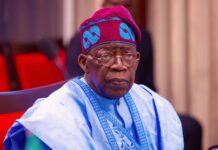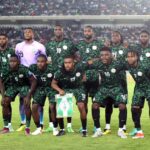The Federal Government has suspended the use of indigenous languages as a medium of instruction in Nigerian schools, directing teachers nationwide to adopt English as the primary language of teaching.
The Minister of Education, Dr. Tunji Alausa, made the announcement on Wednesday at the Language in Education International Conference 2025, organised by the British Council in Abuja.
The two-day conference, themed “Language, Education and Inclusion: Empowering Every Learner,” gathered education policymakers, researchers, and stakeholders from Africa, South Asia, and the UK to explore strategies for promoting inclusive and quality learning through language.
Alausa explained that while preserving native languages remains important for cultural identity, the decision to prioritise English aims to improve comprehension, enhance learning outcomes, and strengthen global competitiveness among Nigerian students.
“The English language should be used to teach our students at all levels as a means of instruction,” Alausa declared.
“Over the years, mother tongues have been used to teach, and this has largely been responsible for the failures recorded in exams. The national policy on language has been cancelled. English now stands as the medium of instruction across all levels of education.”
According to the minister, data revealed that excessive reliance on mother-tongue instruction in certain regions contributed to poor student performance in national examinations such as WAEC, NECO, and JAMB.
He added that English serves as a unifying tool across Nigeria’s diverse linguistic and cultural landscape, offering students greater access to global knowledge, technology, and international opportunities.
“The new policy reflects a shift toward evidence-based governance,” Alausa said, describing the decision as a move away from “emotional attachment to language identity in education.”
Meanwhile, the British Council reaffirmed its support for advancing inclusive and equitable education through language-responsive teaching across Sub-Saharan Africa.
Julian Parry, Director of English Programmes for Sub-Saharan Africa, described language as “a bridge to inclusion, identity and opportunity for every learner,” calling for stronger collaboration and knowledge-sharing to improve education quality.
Also speaking, Chikodi Onyemerela, Director of Programmes at British Council Nigeria, highlighted inclusion as a key pillar of the Council’s education initiatives.
“We are deeply privileged to be hosted in Nigeria. Since 2015, through our Pan-Ethnic Classrooms Programme, we have developed inclusive pedagogy initiatives that enable teachers to embed inclusive practices in the classroom,” Onyemerela said.









